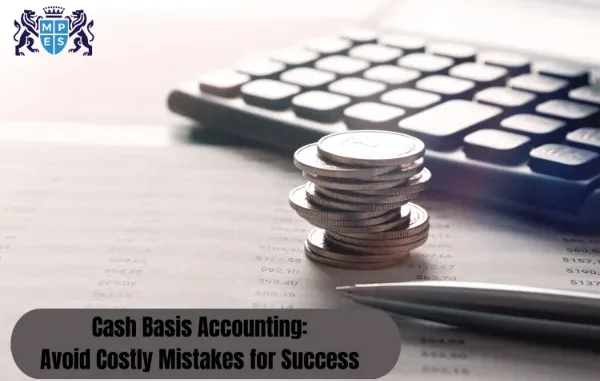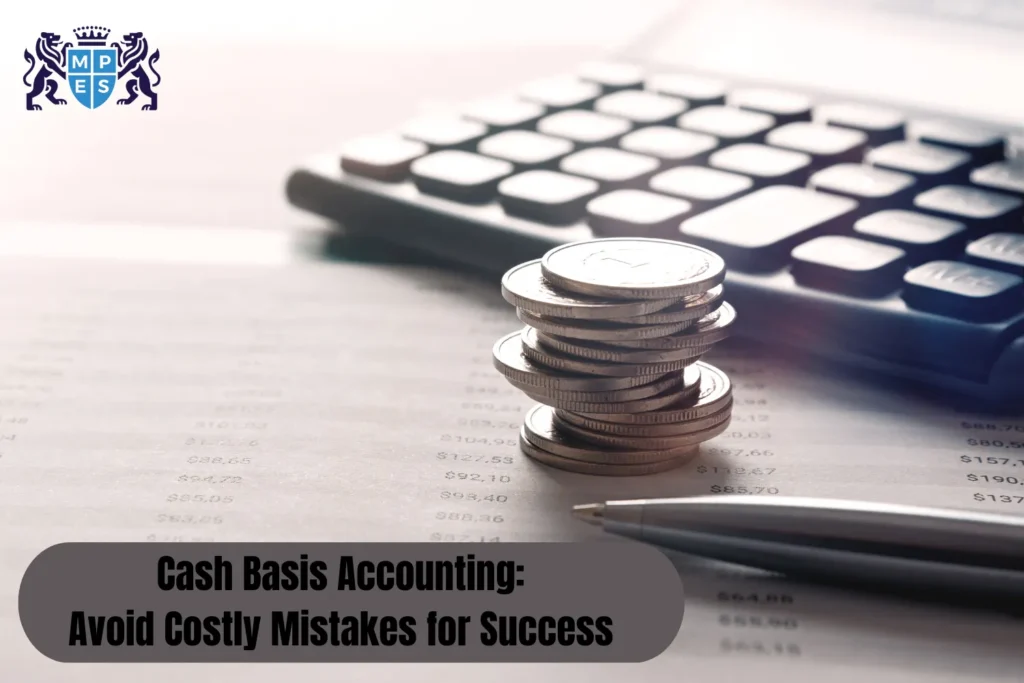

Do you think cash basis accounting is too simple to go wrong?
That’s exactly where many people slip up. If you’re studying Recording Financial Transactions (FA1), you’ll quickly come across Cash Basis Accounting as a common method for beginners and small businesses. It tracks money only when it’s received or spent, with no complex rules, just straightforward cash flow. But that simplicity can be misleading. Small mistakes in this system can lead to significant problems down the line. In this blog, we’ll explore the most common mistakes and how to avoid them to help you manage your finances with confidence.
Table of Contents
- What is Cash Basis Accounting Really About?
- Top Mistakes to Avoid When Using Cash Basis Accounting
- Conclusion
What is Cash Basis Accounting Really About?
It all comes down to time. Income is recorded as soon as it is received, and costs are recorded as soon as they are paid. Until money is transferred, nothing is recorded. For independent contractors and small enterprises that prefer simplicity, this is a good option. However, it also means that you can overlook significant financial trends.
Top Mistakes to Avoid When Using Cash Basis Accounting
Mistakes in cash basis accounting are more common than you might think. Many businesses adopt this method because it feels easy. But without the right habits, it can quickly lead to confusion and missed opportunities. Let’s look at five common pitfalls and how to avoid them:
Mistake 1: Mixing Personal and Business Expenses
Using the same card or account for both personal and corporate expenses is one of the most frequent mistakes. In the short term, it could seem convenient, but later on, when trying to manage records, it can be very problematic. Hours are spent trying to recall the purpose of each transaction.
This misunderstanding may cause problems during audits and have an impact on everything from tax deductions to cost tracking. You will understand the importance of clear, traceable records if you are studying Recording Financial Transactions (FA1). You can avoid many future difficulties by taking the little step of setting up a separate bank account and business card.
Mistake 2: Ignoring Outstanding Payments
It is easy to lose track of what is still due because cash-based accounting only records cash transactions when they physically enter or exit the company. Even though you may have sent out multiple invoices and are certain of your revenue, it won’t appear in your records until it is actually in your account.
This also applies to future bills that have not yet been settled. Even if your obligations exceed your available funds, this gives the appearance of having a healthy cash flow. Maintaining a basic monitoring sheet or utilising accounting software to track both payables and receivables is essential. By doing this, you can avoid unpleasant surprises and gain a comprehensive view of your actual financial situation.
Mistake 3: Misreporting Income Timing
Some business owners could be inclined to push expenses into a specific time or postpone recording income, particularly when managing their accounts. The goal is to alleviate the burden and lower their taxable income.
However, if implemented incorrectly, this strategy may lead to serious problems. Any financial system relies heavily on timing, and the Recording Financial Transactions (FA1) syllabus emphasises the value of precision and consistency. In addition to maintaining accurate records, adhering to the proper reporting periods shields your company against fines and damage to its reputation.
Mistake 4: Skipping Regular Reviews
The idea that fewer pieces of paperwork equate to less need for review is a significant risk associated with cash basis accounting. Nothing could be further from the truth than that. You run the danger of overlooking financial trends that could influence your choices if you don’t check in frequently.
You can identify trends, such as seasonal revenue declines or consistent increases in utility bills, by reviewing your income and expenses on a weekly or monthly basis. Better planning, more precise budgeting, and speedier adjustments when necessary are made possible by this level of awareness. A simple monthly report can make a big difference.
Mistake 5: Not Switching When You Outgrow It
Lastly, continuing to use cash basis accounting after your firm has adopted accrual accounting is one of the biggest mistakes you can make. It works well for microbusinesses or solo proprietors, but it might not be sufficient for expanding organisations.
Accrual accounting gives you a more accurate picture of success when you are managing inventory, working with credit terms, or working on big projects that will take months to finish. Knowing when to make the switch can mean the difference between staying small and growing successfully. Be willing to adapt your approach when your firm needs it, and continually monitor your operations to ensure effectiveness.
Conclusion
Cash basis accounting works well for many, but only if used carefully and effectively. Avoid the common mistakes, review your finances regularly, and be ready to switch when the time comes. A solid grip on Recording Financial Transactions (FA1) will give you the clarity to grow with confidence. Consider taking guidance from MPES Learning to sharpen your understanding and avoid costly mistakes in your accounting journey.






Leave a Reply